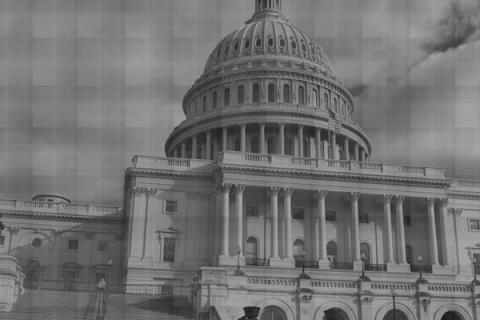 The possible impact of Independent candidates running in the June Open Primary varies dramatically depending on the Legislative or Congressional district you are looking at according to Polling conducted by IVN.us
The possible impact of Independent candidates running in the June Open Primary varies dramatically depending on the Legislative or Congressional district you are looking at according to Polling conducted by IVN.us
IVN conducted polls in six Congressional Districts in regions throughout the state. Districts polled were chosen in an effort to get a feel for how voters in districts with varying political and demographic makeups viewed the Open Primary leading into the candidate-filing period that begins on February 13th.
The survey asked voters to express their opinions on specific changes brought about by the ballot measure passed by the voters in 2010.
In all districts and among all voters the most popular provision of the measure was the change allowing Independent candidates to run in the June primary rather than waiting to run in the November general election.
Voters also indicated that they are more likely to support candidates that publicly support Open Primary.
The poll tested theoretical candidate matchups in an effort to measure the impact Independent candidates could have in different political conditions.
In addition to generic matchups, pollsters tested known local political figures running as Independents in order to get a more realistic picture of the effect an Independent candidate could have on the race. The theoretical Independent candidates were chosen among publicly known figures with varying name ID and favorable/unfavorable ratings. They are NOT actual candidates for Congress.
One of the districts polled was the strongly Democratic 30th Congressional district where veteran Democratic incumbents Howard Berman and Brad Sherman have been thrown into the same district by reapportionment.
There has been much speculation that this seat might produce a Democrat vs. Democrat runoff. However, IVN poll results suggest this is not likely with or without an Independent in the race.
In fact, Congressman Sherman would appear to have a firm lead in the district where he polled 34% to Republican Mark Reed’s 30% with Howard Berman well behind at 14%.
IVN asked the question again with former Assembly Speaker Bob Hertzberg in the race as a theoretical Independent candidate and the results were:
Berman (D) 14%
Sherman (D) 30%
Reed (R) 21%
Hertzberg (NP)14%
So, despite Hertzberg’s strong name ID and high favorable rating, the district appears inclined to produce a Democrat vs. Republican runoff with or without an Independent in the race. The key to this was Sherman holding on to 32% of Independents even with Hertzberg in the race who captured 29% of Independents.
These results contrasted sharply with results in another district gaining national attention. In San Diego’s 52nd district, Republican Congressman Brian Bilbray was forced to move by reapportionment to avoid a head to head with fellow Republican Darrell Issa.
This district is just slightly more Republican than Democratic and has one of the highest Independent registrations in the state. Obama leads in this district 49% to 37% against a generic Republican, and Feinstein polls at 44% to 40%. Independents break 57% for the President and 45% for Feinstein.
Voters in this district like the Open Primary by slightly higher margins than the state as a whole 62% to 24% (Independents: 69% to 24%). They also agree with candidates that argue that the best way to shake up Washington would be to elect candidates not connected to political parties, 59% to 33% (Independents 69% to 27%).
Voters in all the districts say they are more likely to support a candidate who supports the Open Primary by wide margins. Their strongest argument for supporting Open Primary was the ability of Independents to run in the Primary rather than the General election. In the 52nd, 78% of all voters and 85% of Independents supported this change.
The most interesting comparison to come out of these two districts is that the Independent candidate in San Diego ran so much better than the LA candidate despite the fact that he had lower name ID and lower favorability ratings the LA candidate. Some of this is a reflection of the relative popularity of the other candidates but it also is a reflection of the stronger anti-partisan attitudes of the Independent voters in the San Diego district.
IVN first tested a four way race pitting Bilbray against two Democrats and a Tea Party Republican and got the following results:
Brian Bilbray (R) 27%
Wayne Iverson (R) 6%
Scott Peters (D) 13%
Lori Saldana (D) 21%
Undecided 34%
When pollsters added former State Senator Steve Peace as an Independent candidate, Bilbray held his base but Saldana’s second place lead slipped to within the polls margin of error leaving Peters, Saldana, and Peace in a statistical dead heat.
But, what set this district apart from the Berman Sherman contest was the projected November two way race. When Bilbray was matched against the Democrats the race was knotted up in identical 38% to 39% statistical ties.
But, when pitted head to head against Peace running as an Independent, Bilbray trailed 33% to 40% with Peace dominating the Independent vote 55% to 12%.
IVN will release more results and analysis from our statewide polling next week in the run-up to the February 13 filling period.
IVN polled 1800 people with a margin of error of +/- 3%.
***Editors Note: The Berman-Sherman district was originally reported as the 24th congressional district. The 30th congressional district is the correct district and the article has been updated to reflect the reporting error.***
